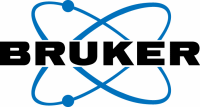FoodScreener Honey Profiling Module
The proven concept of the FoodScreener platform has been extended to establish an NMR-based screening method for honey samples covering aspects related to authenticity, quality control and quantification.

You have successfully submitted your enquiry. Someone from our company will respond ASAP

Bruker provides analytical solutions for food testing and quality management. The company’s range of solutions allows farmers, food companies and authorities to deliver fast and reliable quality testing of food or animal feed, in order to help the food processing industry provide better nutrition and health worldwide.
We use our analytical knowledge to maintain quality and safety in all processes, including product development, production, quality control and inspections. Bruker develops and implements a series of analytical systems in food testing that use high field nuclear magnetic resonance (NMR) systems and time-domain TD-NMR benchtop systems.
Time-domain NMR, also known as pulsed NMR, is a well-known variant of NMR referred to as TD-NMR. Applications for TD-NMR span all kinds of industries, from food, such as solid fat content (SFC) and oil seed analysis, to chemicals and polymers, and finally to the medical and pharmaceutical industry, such as obesity research and magnetic resonance imaging (MRI) contrast agents.
In terms of measurement time and accuracy, the NMR method offers great advantages over classical analytical techniques based on wet chemistry, dilatometry, calorimetry or other spectroscopic techniques. The TD-NMR technique employed by Bruker’s minispec system is the perfect tool for the quantification of one, two or more components in a sample. It discriminates between oil and moisture with very high accuracy. The physical properties of a sample correlate to reference data, whilst the relaxation times characterize the main components of a sample mixture. In addition, sample studies at different temperatures offer further information about characteristic sample features (e.g. SFC determination).
TD-NMR is ideal for routine QA/QC and R&D applications as it can be used for:
Raw materials like fat compositions or blends need to be characterized and controlled according to their melting profiles. SFC determination by TD-NMR analysis is the internationally recognized standard method. It provides a quick, non-destructive and solvent-free measurement. Bruker offers a fully automated solution including tempering procedures, NMR measurement, and determination of the SFC value plus presentation of the melting curve.
Bruker’s new easy-to-use, cost-effective sample automation system brings automation to routine minispec applications, including complex SFC analysis. Now, thanks to quick sample exchange times that maximize throughput and increase reliability in minispec measurements, productivity is significantly boosted. The minispec sample automation system is available as a standalone accessory to existing minispec systems from the mq and mq-one series, or as a complete new packaged system, enabling all users to benefit from a single supplier solution.
Key advantages include:
This standard method from Bruker can be used to measure total fat content in chocolate and chocolate related products, such as cocoa powder, chocolate liquor and cocoa beans.
TD-NMR’s reliable and precise method is also ideal for determining oil and moisture content in products such as chips, crisps, nuts, milk powder, dried sausages, dried marzipan and candies – using simple calibration methods based on just 3-5 samples.
Benefits of using NMR for determination of fat and oil content in foodstuffs:
Droplet size distribution in food emulsion gives important information about the flavor, spread behavior, stability and shelf life of these products. The minispec provides a non-destructive, user-friendly and cost-effective means of assessing droplet size distribution in water-in-oil emulsions (e.g. margarine, spreads …) and oil-in-water emulsions (e.g. mayonnaise, dressings…).

The proven concept of the FoodScreener platform has been extended to establish an NMR-based screening method for honey samples covering aspects related to authenticity, quality control and quantification.

Bruker has announced the release of an updated and enhanced Wine-Profiling module for the Nuclear Magnetic Resonance (NMR) FoodScreener platform.

The new honey profiling module of the NMR FoodScreener has gained acceptance by major global food analysis labs and honey-packers due to its unique capabilities to rapidly and cost-effectively detect adulteration, and mislabeling of content or origin.

Following its launch in 2015, the new Honey-Profiling module of the NMR FoodScreener solution from Bruker has been adopted by several analytical testing laboratories, and is gaining acceptance from producers in the industry.

Bruker has announced its NMR FoodScreener laboratory for food authenticity and quality determination in Rheinstetten, Germany, has been granted ISO/IEC 17025 accreditation.

The second-generation module of the FoodScreener for wine profiling allows easy and cost-efficient NMR-based wine analysis.

The new NMR screening solution specifically for the analysis of honey is the latest module of Bruker's FoodScreener product line, which will be released in April.

At Pittcon 2014 Bruker announced a new sample automation system for the minispec mq and mq-one series, a new easy to use and cost-effective system that brings sample automation to routine Time-Domain (TD)-NMR applications.
Raw materials such as fat compositions or blends are characterised and controlled according to their melting profiles.
Bruker's minispec seed analyser is a benchtop time-domain nuclear magnetic resonance (TD-NMR) system, providing a reliable and accurate method of measuring oil and moisture in seeds and residues.
The Bruker minispec has become well-known in the fat and chocolate industries for precise and reliable calculation of fat melting profiles, using solid fat content (SFC) determination.
Developed by Bruker BioSpin and SGF International, SGF Profiling is an NMR-based screening method for fruit juices.
A concept from juice and wine screening is under generalisation in order to establish a screening method for honey covering relating to authenticity, quality control and quantification.
Bruker now offers a complete solution for automated determination of solid fat content (SFC) in fat compositions.
Bruker's benchtop time-domain nuclear magnetic resonance (TD-NMR) analyser is a versatile and easy-to-use turnkey solution for rapid quality and process control in food manufacturing.
Bruker's beer analysis solution enables fast and automated beer quality control and optimisation of shelf life.
A solution for analysing wine using nuclear magnetic resonance (NMR) spectroscopy was developed by Bruker with assistance from Winespin Analytics.
The FoodScreener Honey Profiling can detect the presence of exogenous sugars and identify the botanical and geographical origin of honey.